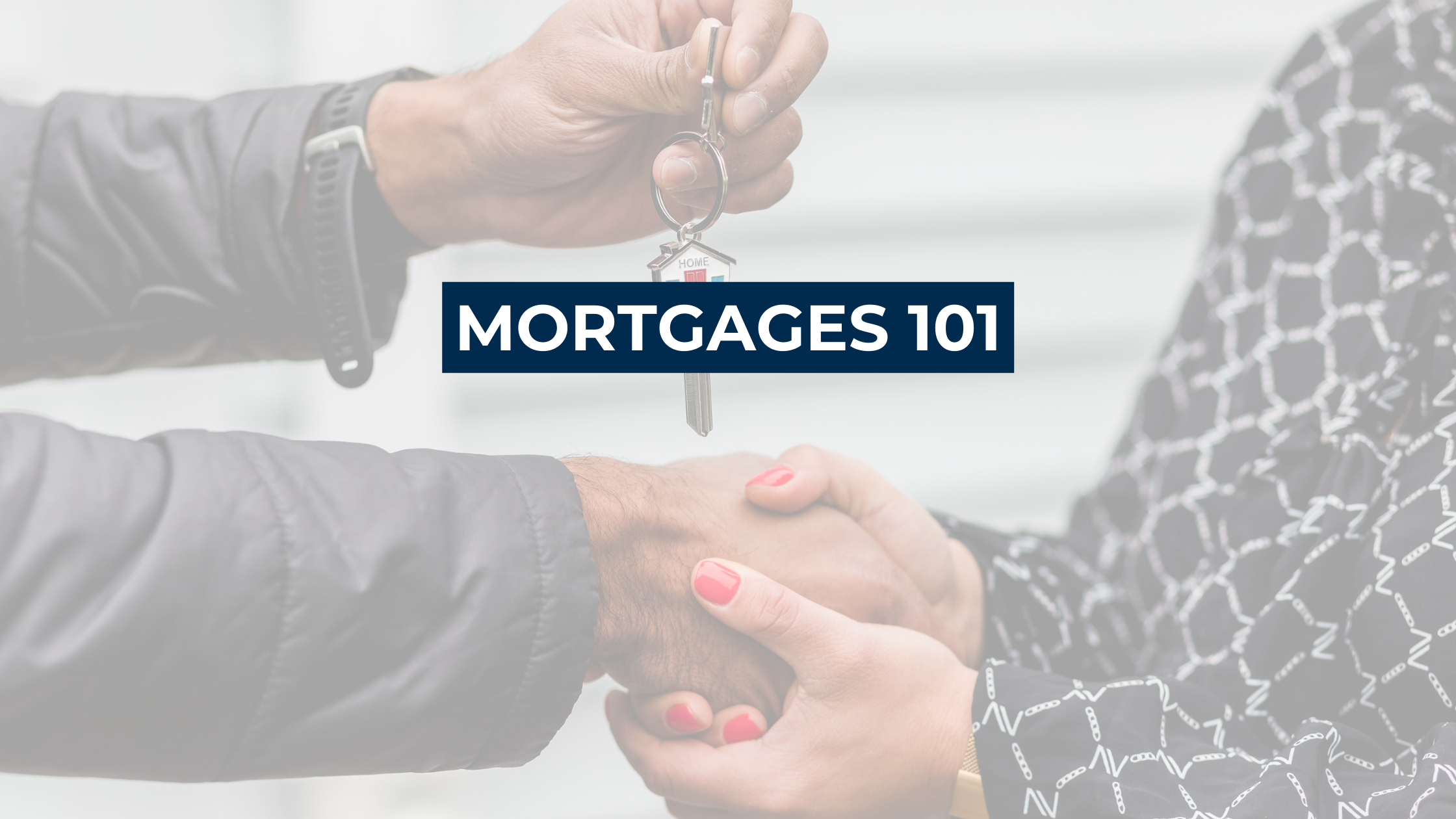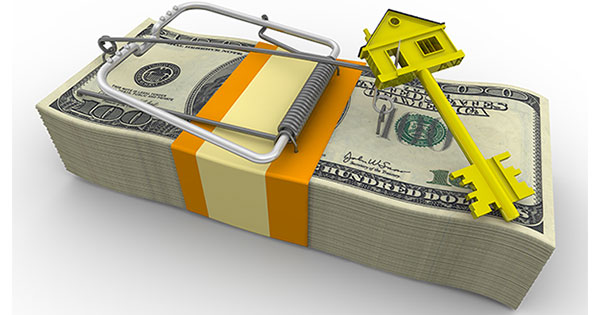Social Links Widget
Click here to edit the Social Media Links settings. This text will not be visible on the front end.
A First-Time Buyer’s Guide to Mortgages

Mortgages can seem daunting for many first-time home buyers. While becoming a homeowner is exciting, it can be intimidating to embark on an investment of this magnitude. We sat down with WBC’s resident loan officer, Jim Murphy of Movement Mortgage to get the best tips for first-time buyers who are navigating the mortgage loan process.
What is a mortgage?
Mortgages are secured loans, where the “borrower promises collateral to the lender in the event that they stop making payments”, with the home itself being the collateral. There are different programs available depending on the financial situation, occupation, and credit score of the borrower. To better understand your options, you will need to meet with a lender to ascertain what you can afford.
The Pre-Qualification Process
Before meeting with a lender, you will need to make sure all the relevant documents are in order. This is known as pre-qualification and helps determine what type of loan you might qualify for. Financial documents that most lenders want to see include:
- Recent pay stubs
- Copies of your tax returns
- W2 forms
- Bank statements for checking, saving, and retirement/investment accounts
- Credit card bills
- Lease agreement, if applicable
- Student loan deferment letters/agreements, if applicable
Once you have all the necessary paperwork, it’s time to set up an appointment with a mortgage company to discuss your options. Some loan programs will offer lower interest rates based on your credit score, while others will offer a lower down payment in exchange for paying insurance premiums.
WBC: What are some of the most important questions a first-time buyer should ask when they meet with a lender?
Jim Murphy: I think one of the biggest questions a client should ask is “How do I make myself as strong of a buyer as possible”. Completing an application and providing all the documents that [a lender] requires to get a To-Be-Determined (TBD) underwritten loan will basically clear any pitfalls outside of an appraisal. This will show that you have been approved up to a certain loan ceiling and from there, we just need to find a property!
The Pre-Approval Process
Mortgage pre-approval is an offer by the lender to loan you a certain amount under specific terms, but it is not a guarantee that you will receive a final approval. It is simply verification that you qualify for the amount that you have applied for based on your credit history, income and assets, etc. This step involves a deeper dive into the documents you submitted during the prequalification process.
WBC: Do you have any tips for first-time buyers to ensure a smooth pre-approval process?
JM: The best thing a client and lender can do is have a clear and open communication about their financing goals and the outcomes a lender can deliver. Clients have a budget in mind, both in the monthly payment and down payment they can comfortably afford, but sometimes [they] can qualify for much more. [Keeping an] open dialogue between the lender and client are imperative for success.
The Final Loan Approval
After obtaining a pre-approval document from your lender, you are ready to start looking for your new home! Lenders will offer you a loan estimate based on the estimated interest rate, monthly payment and total closing costs for the loan. Your mortgage application will then be assessed by underwriters who will determine “if the funds from the sale of the property are enough to cover the amount you will be lent in your mortgage.”
If your application is approved, you now have the green light to close on the property!
WBC: What is one final piece of advice you have for first-time home buyers?
JM: Don’t be afraid to buy something that needs a little work to be a really nice home. There are loan products available, like a renovation loan, that does not require a large down payment but can make the home that needs some renovation feel like your own!
Understanding the role of mortgages in your homeowner journey may seem overwhelming, but with the support of knowledgeable Windermere agents and our amazing partners at Movement Mortgage, finding the home of your dreams can become a reality! Get in touch with the WBC team today to start your home search and don’t forget to check out the WBC Tik Tok account for the full-length interview, Mortgages 101 with Jim Murphy, here.
Written by Makena Schoene
Are You Better Off Paying Your Mortgage Early or Investing Your Money?


Photo Credit: Rawpixel via Unsplash
Few topics cause more division among economists than the age-old debate of whether you’re better off paying off your mortgage earlier, or investing that money instead. And there’s a good reason why that debate continues; both sides make compelling arguments.
For many people, their mortgage is the largest expense they will ever incur in their lives. So if given the chance, it only makes logical sense you would want to pay it off as quickly as possible. On the other hand, a mortgage is also the cheapest money you will ever borrow, and it’s generally considered good debt. Any extra money you obtain could be definitely be put to good use elsewhere.
The reality is, however, a little less cut and clear. For some homeowners, paying off their mortgage earlier is the right answer. While for others, it would be far more advantageous to invest their money.
Advantages of paying off your mortgage earlier
- You’ll pay less interest: Each time you make a mortgage payment, a portion is dedicated towards interest, and another towards principal (we’ll ignore other costs for now). Interest is calculated monthly by taking your remaining balance, the length of your amortization period, and the interest rate agreed upon with your lending institution.
If you have a $300,000 mortgage, at a 4% fixed rate over 30 years, your monthly payment would be around $1,432.25. By the time you finish paying off your mortgage, you would have paid a total of $515,609, of which $215,609 were interest.
If you wanted to lower the total amount you pay on interest, you don’t need to make a large lump sum to make a difference. If you were to increase your monthly mortgage payment to $1,632.25 (a $200 a month increase), you would be saving $50,298 in interest, and you’ll pay off your mortgage 6 years and 3 months earlier.
Though this is an oversimplified example, it shows how even a small increase in monthly payments makes a big difference in the long run.
- Every additional dollar towards your principal has a guaranteed return on investment: Every additional payment you make towards your mortgage has a direct effect in lowering the amount you pay in interest. In fact, each additional payment is, in fact, an investment. And unlike stocks, bonds, and other investment vehicles, you are guaranteed to have a return on your investment.
- Enforced discipline: It takes real commitment to invest your money wisely each month instead of spending it elsewhere.
Your monthly mortgage payments are a form of enforced discipline since you know you can’t afford to miss them. It’s far easier to set a higher monthly payment towards your mortgage and stick to it than making regular investments on your own.
Besides, once your home is completely paid off, you can dedicate a larger portion of your income towards investments, your children or grandchildren’s education, or simply cut down on your working hours.
Advantages of investing your money
- A greater return on your investment: The biggest reason why you should invest your money instead comes down to a simple, green truth: there’s more money to be made in investments.
Suppose that instead of dedicating an additional $200 towards your monthly mortgage payment, you decide to invest it in a conservative index fund which tracks S&P 500’s index. You start your investment today with $200 and add an additional $200 each month for the next 30 years. By the end of the term, if the index fund had a modest yield of 5% per year, you will have earned $91,739 in interest, and the total value of your investment would be $163,939.
If you think that 5% per year is a little too optimistic, all we have to do is see the S&P 500 performance between December 2002 and December 2012, which averaged an annual yield of 7.10%.
- A greater level of diversification: Real estate has historically been one of the safest vehicles of investment available, but it’s still subject to market forces and changes in government policies. The forces that affect the stock and bonds markets are not always the same that affect real estate, because the former are subject to their issuer’s economic performance, while property values could change due to local events.
By putting your extra money towards investments, you are diversifying your investment portfolio and spreading out your risk. If you are relying exclusively on the value of your home, you are in essence putting all your eggs in one basket.
- Greater liquidity: Homes are a great investment, but it takes time to sell a home even in the best of circumstances. So if you need emergency funds now, it’s a lot easier to sell stocks and bonds than a home.
Don’t Get Caught in the Rental Trap!


There are many benefits to homeownership. One of the top benefits is being able to protect yourself from rising rents by locking in your housing cost for the life of your mortgage.
Don’t Become Trapped
Jonathan Smoke, Chief Economist at realtor.com, reported on what he calls a “Rental Affordability Crisis.” He warns that,
“Low rental vacancies and a lack of new rental construction are pushing up rents, and we expect that they’ll outpace home price appreciation in the year ahead.”
In the Joint Center for Housing Studies at Harvard University’s 2016 State of the Nation’s Housing Report, they revealed that “The number of cost-burdened households rose to 21.3 million. Even more troubling, the number with severe burdens (paying more than 50% of income for housing) jumped to a record 11.4 million.” These households struggle to save for a rainy day and pay other bills, such as food and healthcare.
It’s Cheaper to Buy Than Rent
In Smoke’s article, he went on to say,
“Housing is central to the health and well-being of our country and our local communities. In addition, this (rental affordability) crisis threatens the future value of owned housing, as the burdensome level of rents will trap more aspiring owners into a vicious financial cycle in which they cannot save and build a solid credit record to eventually buy a home.” “While more than 85% of markets have burdensome rents today, it’s perplexing that in more than 75% of the counties across the country, it is actually cheaper to buy than rent a home. So why aren’t those unhappy renters choosing to buy?”
Know Your Options
Perhaps you have already saved enough to buy your first home. HousingWire reported that analysts at Nomura believe:
“It’s not that Millennials and other potential homebuyers aren’t qualified in terms of their credit scores or in how much they have saved for their down payment. It’s that they think they’re not qualified or they think that they don’t have a big enough down payment.” (emphasis added)
Many first-time homebuyers who believe that they need a large down payment may be holding themselves back from their dream home. As we have reported before, in many areas of the country, a first-time home buyer can save for a 3% down payment in less than two years. You may have already saved enough!
 Facebook
Facebook
 X
X
 Pinterest
Pinterest
 Copy Link
Copy Link


